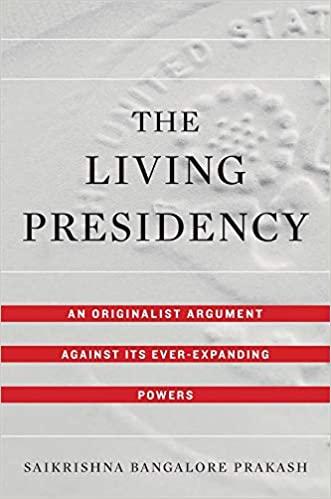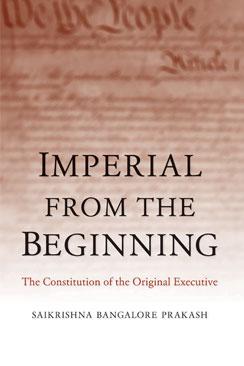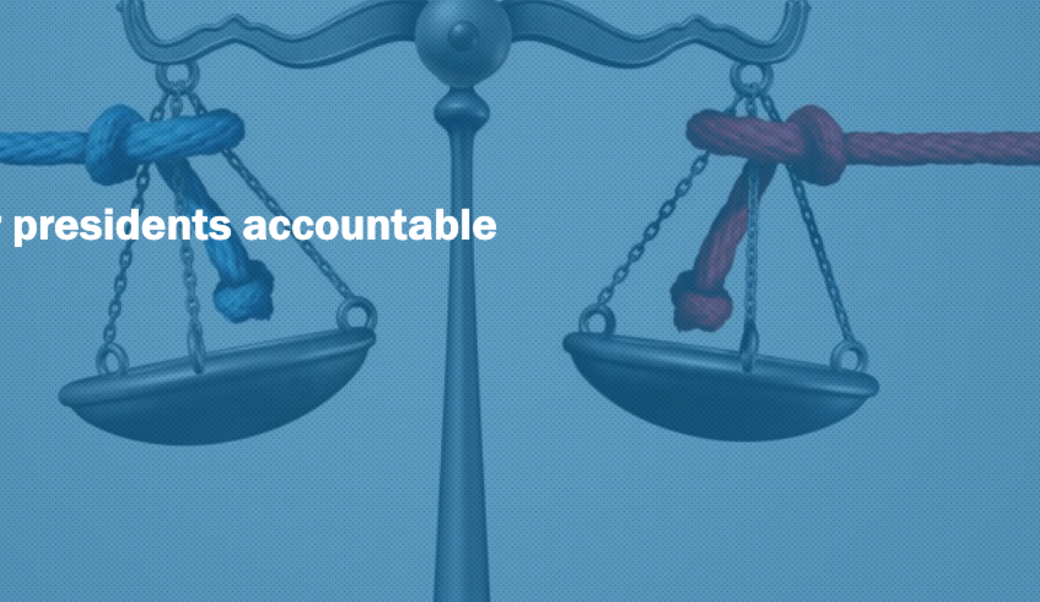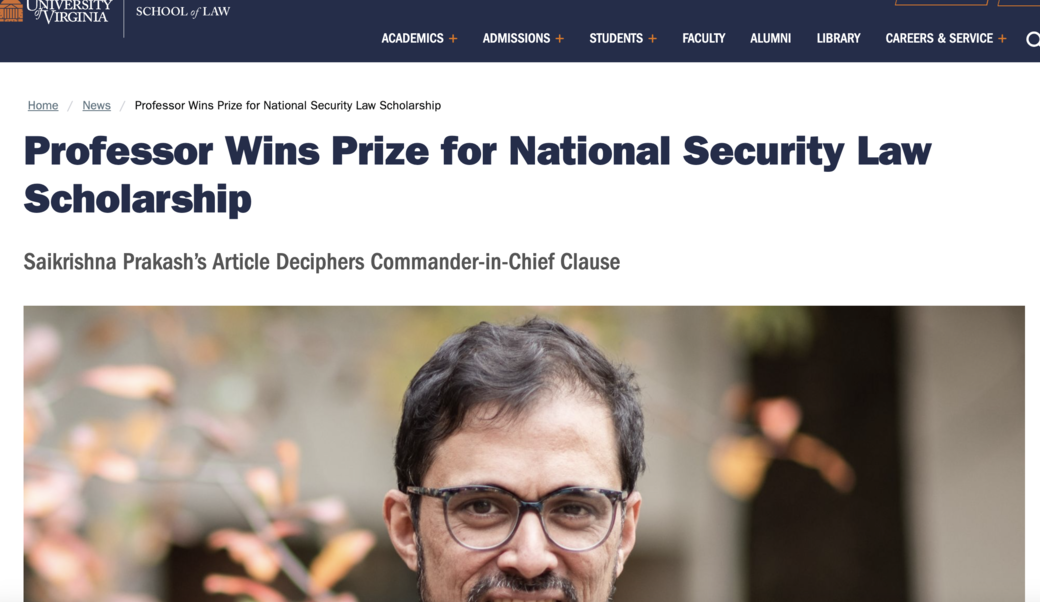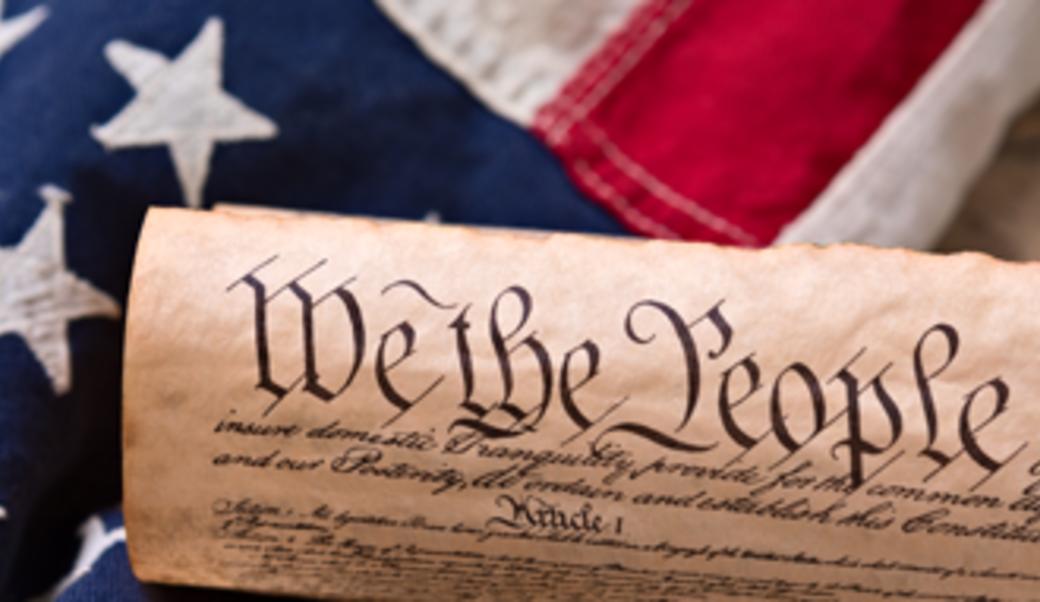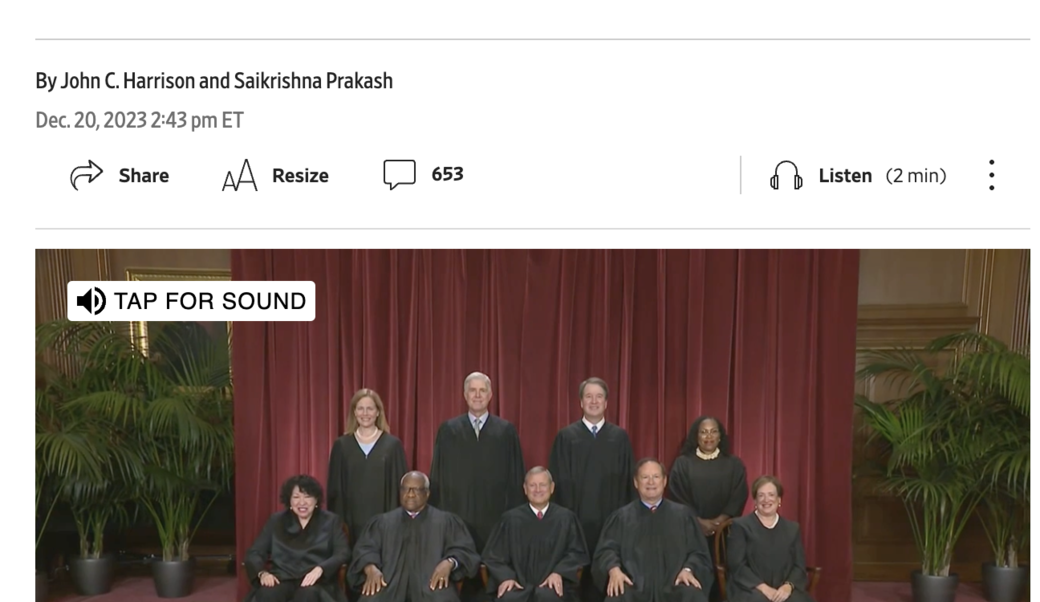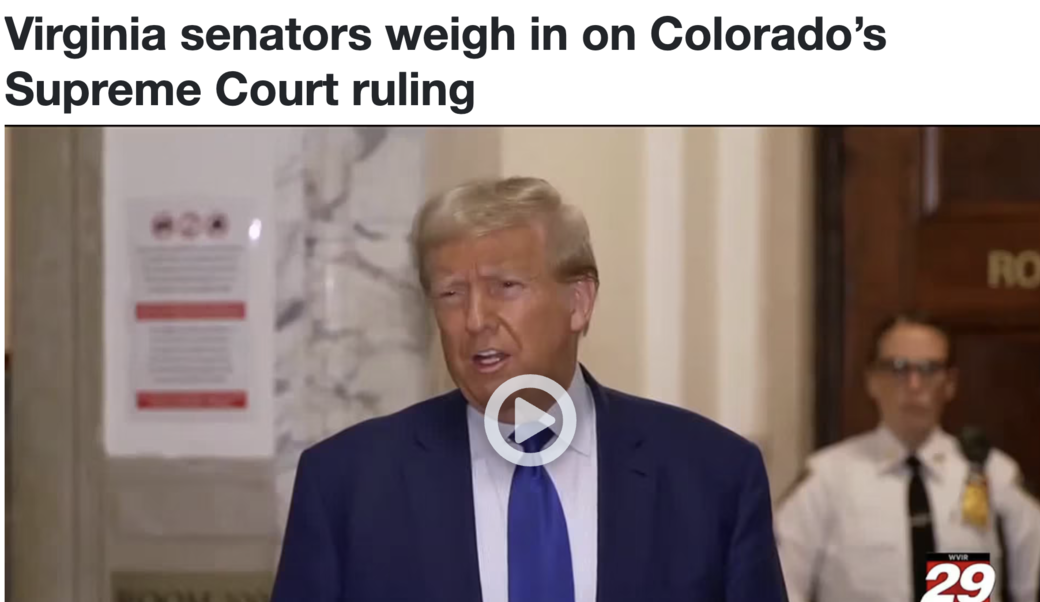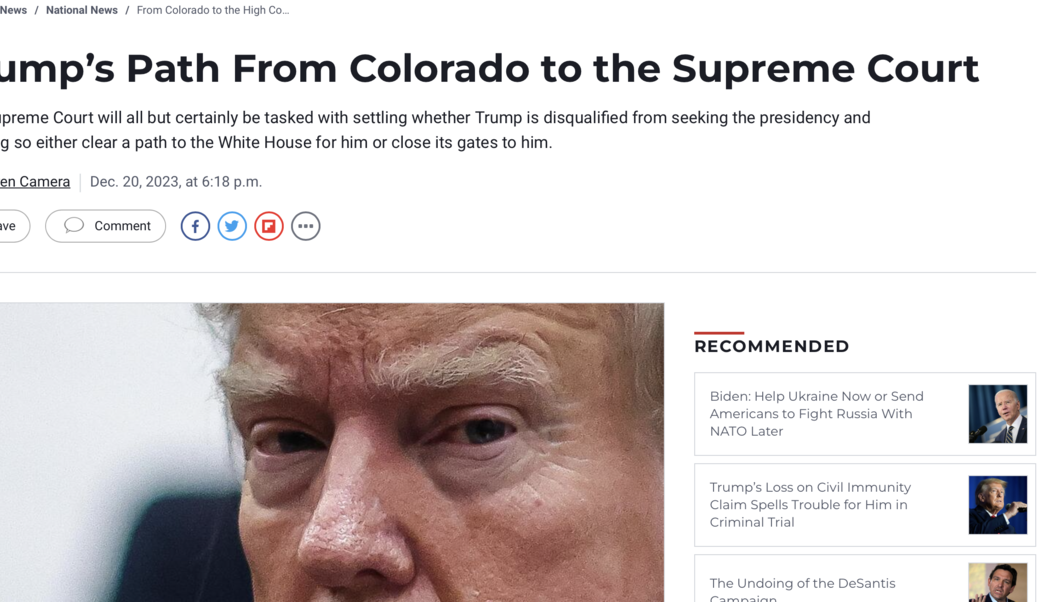Fast Facts
- James Monroe Distinguished Professor of Law and Albert Clark Tate, Jr., Professor of Law at the University of Virginia Law School
- Author of The Living Presidency: An Originalist Argument against Its Ever-Expanding Powers
- Clerked for U.S. Supreme Court Justice Clarence Thomas
- Expertise on constitutional law, presidential powers, foreign relations law, war powers, emergency powers, separation of powers
Areas Of Expertise
- Foreign Affairs
- Domestic Affairs
- Law and Justice
- Governance
- Political Parties and Movements
- Politics
- The Presidency
- Supreme Court
Saikrishna Prakash, faculty senior fellow, is the James Monroe Distinguished Professor of Law and Albert Clark Tate, Jr., Professor of Law at the University of Virginia Law School. His scholarship focuses on separation of powers, particularly executive powers. He teaches constitutional law, foreign relations Law and presidential powers at the University of Virginia Law School.
Prakash majored in economics and political science at Stanford University. At Yale Law School, he served as senior editor of the Yale Law Journal and received the John M. Olin Fellowship in Law, Economics and Public Policy. After law school, he clerked for Judge Laurence H. Silberman of the U.S. Court of Appeals for the District of Columbia Circuit and for Justice Clarence Thomas of the U.S. Supreme Court. After practicing in New York for two years, he served as a visiting professor at the University of Illinois College of Law and as an associate professor at Boston University School of Law. He then spent several years at the University of San Diego School of Law as the Herzog Research Professor of Law. Prakash has been a visiting professor at the Northwestern University School of Law and the University of Chicago Law School. He also has served as a James Madison Fellow at Princeton University and Visiting Research Fellow at the Hoover Institution at Stanford University.
Among Prakash's articles are "50 States, 50 Attorneys General and 50 Approaches to the Duty to Defend," published in the Yale Law Journal; "The Imbecilic Executive," published in the Virginia Law Review; and "The Sweeping Domestic War Powers of Congress," published in the Michigan Law Review. He is the author of The Living Presidency: An Originalist Argument against Its Ever-Expanding Powers and Imperial from the Beginning: The Constitution of the Original Executive.
Saikrishna Prakash News Feed
Former President Donald Trump has been charged in four separate criminal cases, two of them in federal court, including an election interference case related to the January 6 attack on the U.S. Capitol. Trump’s lawyers have denied any wrongdoing and have argued that the former president cannot be prosecuted. President Joe Biden has also faced some legal challenges, including for mishandling classified documents. In this event, a panel of experts will help us make sense of the various cases and examine the broader issue of executive power.
